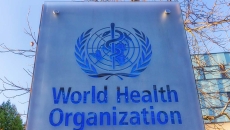Quality and Safety
While the World Health Organization says it's "enthusiastic about the appropriate use" of large language models such as ChatGPT, it has deep concerns about artificial intelligence being used in "safe, effective, and ethical ways."
"We're aiming to cut through the buzz around AI in healthcare to prove the promise and positive impact of this exciting technology for improving patient outcomes."
Verana Health uses large amounts of structured and unstructured de-identified patient data, including medical images, to inform value-based care models, explains Lawrence Whittle, CCO.
The agency says it is reviewing a deluge of comments on its February proposed rulemaking ending telehealth prescriptions for certain controlled substances. It's unclear how far this new extension will last beyond the end of the PHE.
Its new Hospital Safety Grade report shows rates of healthcare-associated infections CLABSI, MRSA and CAUTI with double-digit increases. Meanwhile, safety-related patient experience ratings have declined.
What's more, data work surrounding the early warning system helped spur physician use of evidence-based order sets to greater than 70% – which greatly reduces overall mortality.
Targeted alerts for specific drugs can help clinicians make the right treatment decisions for their patients, says Anna Dover, director of product management at First Databank, who discusses those and other automation innovations.
The Agency for Healthcare Research and Quality is recruiting providers to participate in a new effort to ensure safety when diagnosing cancer via virtual care. The results will also help shape approaches to other diseases.
An emerging best practice for healthcare boards may be to fill at least one board seat with a person experienced in overseeing AI consumer products, says a Berkeley Research Group expert.








